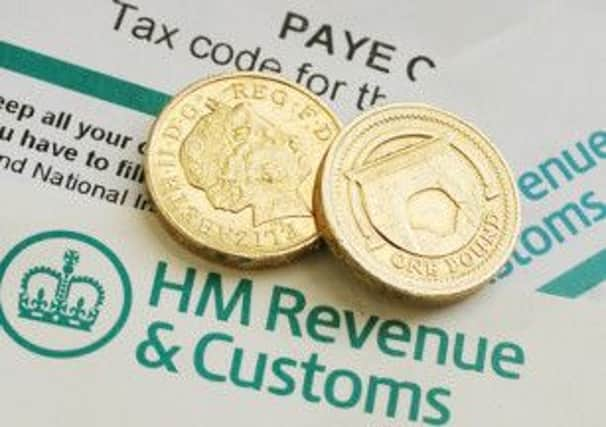Erikka Askeland: A golden era when tax was transparent


They explained that the owners, having baulked at William III’s latest gold collecting wheeze to pay for the wars, simply reduced the number of windows they had. It was tax evasion imprinted onto 17th century architecture: a loophole written in stone.
Except the bricking up of windows to avoid the tax man has turned out to be a bit of a myth – or at least it is in Scotland. This week, those the National Records of Scotland published online hundreds of volumes of records detailing decades of window tax, up until 1851 when it was repealed. On 29 July, the records will go on display in a public exhibition.
Advertisement
Hide AdAdvertisement
Hide AdThe archivists’ startling discovery was that there were only a few instances where the assessors had noted when there were fewer windows than there had been the last time they were there – and the diligent army of tax men did their rounds every six months.
The archivists reckon the existence of these intriguing stonemasonry gaps were not tax evasion but an architectural feature, more to ensure outward symmetry when inside a window was not wanted – in a privy, say or behind shelving. Or they were built in the decades that followed, giving the proud new home owner the option of paying a few shillings more if they wanted the light coming in.
Nevertheless the window tax, which came into force in England in 1696 but not in Scotland until 1747 – was notoriously unpopular. As any tax is. Or seems to be – perhaps we have changed, since major corporations, televisions personalities and hedge fund managers have been seen to game the system so easily they barely have to pay their dues.
Now people are taking to the streets to see taxes imposed, which is a change from the usual. For most of British history, when governments and kings decided to force the populace to cough up there were riots, as happened in Glasgow in 1713 after the imposition of the malt tax. And who can forget the poll tax riots? Now, as the summer simmers on, we are just waiting for people to get really upset about the so-called “bedroom tax” being imposed on housing benefit claimants.
The difference this time, though, is embodied in the infamous throw-away line of Leona “queen of mean” Helsmley, the American billionaire property magnate who allegedly claimed “only little people pay taxes”. She ended up serving 21 months of a four-year sentence for tax evasion.
Ever since the window tax – and the carriage tax, the clock tax, the dog tax and servant tax – was thrown out in favour of income tax, things have changed. Tax codes have become so complex and difficult to interpret they are scarcely comprehendible.
At least with the window tax, the amount owed to the crown was evident for all to see. And those who were found to have filled in a window since the last time an assessor came around were fined, making tax evasion pretty pointless.
We still all pay a levy based on property in the form of council tax, which is how the roads are mended and the bins collected, but this is now almost vestigial. According to a recent article in the Economist, taxes on property only account for 12 per cent of funds raised for the state in the UK, compared to 17 per cent in the US.
Advertisement
Hide AdAdvertisement
Hide AdCompared to what those famous celebrity tax dodgers such as comedian Jimmy Carr and Queen’s Park manager Harry Redknapp have been up to, window tax seemed comparatively fair. Most were excluded as it only applied to properties with ten windows or more. But eventually, as George III faced uprisings in the Americas and the Highlands, the squeeze widened. In 1766 the threshold was reduced to seven windows. What kept it “progressive” was that the more windows you had, the more you paid. Although tax is never popular, window tax was at least – transparent.